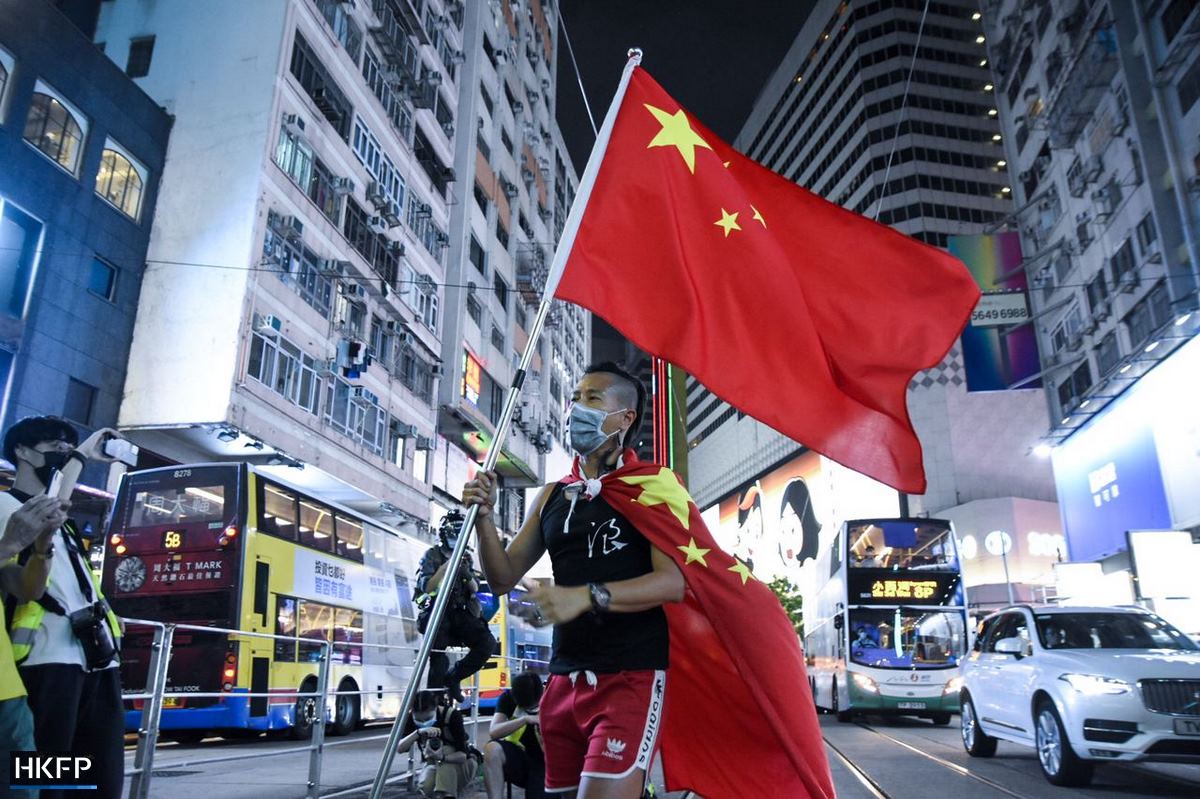In an NBC Universal broadcast of the opening ceremony for the Tokyo Olympics, an “incomplete map” of China was displayed during the arrival of its athletes, according to Chinese authorities. Although they did not indicate what exactly was missing, their intent was clear. Neither Taiwan nor the South China Sea were part of the map.
In a statement on its Weibo social media platform, the Chinese consulate in New York said the map “hurt the dignity and emotions of the Chinese people.” The Global Times, another Chinese government outlet, was also critical.
While the decision to leave Taiwan off the map may have had political undertones given the recent frosty relations between the United States and China, there was certainly another reason. After all, Taiwan has its own team at the Olympics under the awkward compromise name of “Chinese Taipei.” NBC may have decided that having Taiwan appear on two maps could confuse some of the geographically challenged Americans in its audience.
Such criticism from Chinese authorities follows a long string of hurt feelings in recent decades. The earliest such affront that I could find dates back to 1959 when Chinese politician Liao Chengzhi used the phrase in reference to a dispute with Japan.

In an earlier HKFP column, columnist David Bandurski noted several other instances where Chinese people’s feelings had been hurt. More recently, foreign entities that have offended the Chinese people have learned to play along by using the “hurt feelings” phrase in apologies for perceived infractions.
In 2019, for example, when Daryl Morey, the general manager of the Houston Rockets, tweeted support for the Hong Kong protesters, the uproar in China was swift. Thus, shortly afterwards, the National Basketball Association, fearing damage to its bottom line, was quick to apologise and describe Morey’s comments as regrettable. Then in Chinese it added, “We are deeply disappointed about Morey’s inappropriate comment and he undoubtedly has hurt Chinese fans’ feelings severely.”
The question remains: How has one of the the world’s oldest civilisations and its second largest economy become so prickly that the omission of an island from a map briefly displayed during a foreign broadcast can hurt the feelings of its entire population?
One doubts whether the French people would be offended not to see St. Pierre et Miquelon displayed on a map of France during a similar broadcast. Likewise, with Spain and Ceuta. Surely the feelings of Americans would not be hurt if a briefly displayed map of the United States omitted Hawaii or Puerto Rico on a Chinese broadcast.
In a sign of our times, China is not alone in its sensitivity and ultra-prickliness. And this not only concerns territorial possessions but also images related to culture. During the same opening ceremony, South Korean broadcaster MBC attempted to familiarise its audience with the cultural attributes of various countries during the parade of nations.
For example, for Haiti, they mentioned the recent assassination of its president, for Syria the decade-long civil war, for Italy, pizza, for Romania, Dracula, for Ukraine, the Chernobyl nuclear disaster, and so on.
A day later, with its tail between its legs, MBC issued an apology to the countries concerned and its viewers for an “inexcusable mistake” – clearly reflecting the hypersensitivity among certain members of its audience. As I did not view MBC’s broadcast, I do not know how they characterised my native country, Canada, but if they showed lumberjacks, maple syrup or hosers (look it up), I hazard to guess it would hurt the feelings of at least a few prickly Canadians.
In the end, I suppose I should not be so surprised about this hypersensitivity. After all, even the Bible advises that we should not take the Lord’s name in vain. I guess I just have to hope that God, the omnipotent creator of the universe, is not so sensitive that he is keeping count of my odd “goddamnit.”
Support HKFP | Policies & Ethics | Error/typo? | Contact Us | Newsletter | Transparency & Annual Report | Apps
| HKFP is an impartial platform & does not necessarily share the views of opinion writers or advertisers. HKFP presents a diversity of views & regularly invites figures across the political spectrum to write for us. Press freedom is guaranteed under the Basic Law, security law, Bill of Rights and Chinese constitution. Opinion pieces aim to point out errors or defects in the government, law or policies, or aim to suggest ideas or alterations via legal means without an intention of hatred, discontent or hostility against the authorities or other communities. |
Help safeguard press freedom & keep HKFP free for all readers by supporting our team

More HKFP OPINION:
HKFP has an impartial stance, transparent funding, and balanced coverage guided by an Ethics Code and Corrections Policy.
Support press freedom & help us surpass 1,000 monthly Patrons: 100% independent, governed by an ethics code & not-for-profit.










